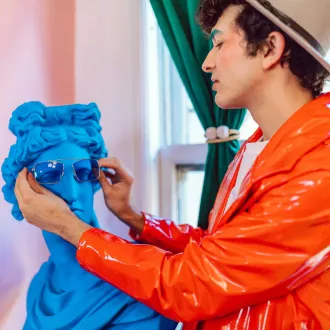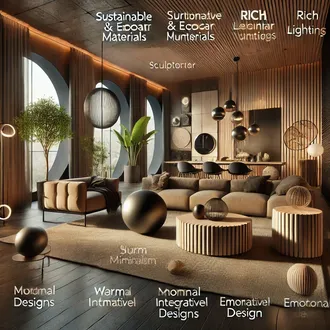Obtaining an educational degree
The first step to becoming an interior designer is to obtain a formal education. Most interior designers have a college degree in interior design, architecture or related fields. These programs of study provide a solid foundation in:
- Design principles: you'll learn about design theory, the fundamental elements and principles that guide the creation of aesthetically pleasing and functional spaces.
- Design history: You will understand how interior design has evolved over time and how historical trends influence contemporary design.
- Computer-Aided Design: You will acquire skills in design software, such as AutoCAD and SketchUp, which are crucial tools for creating floor plans and visualizations.
Practical skills development
In addition to formal education, it is critical to develop practical skills that will allow you to apply what you have learned in the classroom. Some of the most important practical skills include:
- Ability to work with clients: You should be able to understand and interpret the needs and desires of your clients to create custom designs that meet their expectations.
- Knowledge of materials and finishes: It is important to have a thorough understanding of the different materials and finishes available and how they are used in interior design.
- Project management: The ability to coordinate and manage projects is crucial to ensure you complete designs on time and within budget.
Obtaining certifications and licenses.
In many places, obtaining a professional certification can enhance your job opportunities and provide additional credibility. Common certifications include:
- Interior Design Certification [NCIDQ]: In many countries, this certification is required to work as an interior designer. The NCIDQ tests your knowledge and skills in design and professional practices.
- Software certifications: Obtain certifications in computer-aided design software that demonstrate your proficiency in key tools such as AutoCAD and Revit.
Work experience and internships
Practical experience is essential to developing your skills and building a strong portfolio. Consider the following options:
- Internships: Intern at interior design firms to gain hands-on experience and establish industry connections.
- Personal projects: Work on personal projects to demonstrate your creativity and interior design skills.
Continuing Education
The interior design field is constantly evolving, so it's important to stay current with the latest trends and technologies. Consider continuing education through:
- Courses and workshops: Participate in specialized courses and workshops to acquire new knowledge and skills.
- Reading publications: Keep abreast of design publications and current trends to keep evolving in your career.
Conclusion
Becoming an interior designer requires a combination of formal education, practical skills and experience. With the right knowledge and a commitment to continuing education, you can build a successful career in this exciting field. If you are interested in learning more about interior design and how to develop your skills in this area, we invite you to explore our specialized courses designed to help you achieve your career goals.




